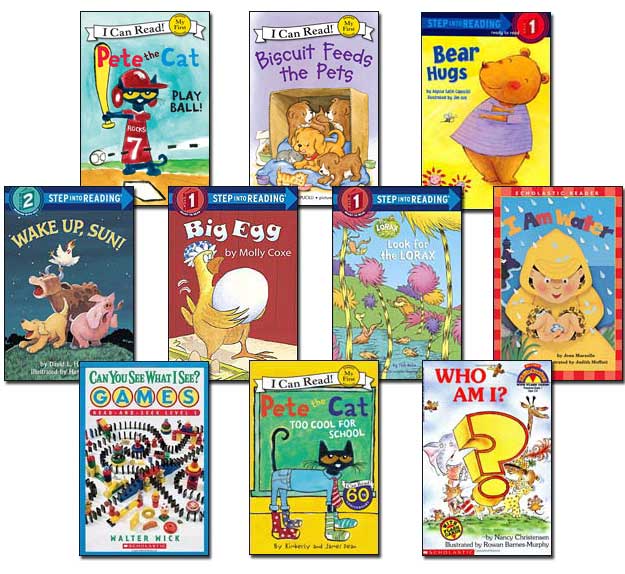'restless eyes,' the reader can infer that the man is determined and the one navigating their way through the area. The reader can also infer that the other man is more absent-minded and slow because he 'nearly ran over' the other man when he stopped in the path, dragged his feet and flung himself on the ground when they stopped. K-8 The Number System. All Resources (by date) 1162 Total Lessons. Enterprising Women: Using Children's Literature to Teach Economics. Literature, a body of written works. The name has traditionally been applied to those imaginative works of poetry and prose distinguished by the intentions of their authors and the perceived aesthetic excellence of their execution. It may be classified according to a variety of systems, including language and genre. Literature and english. Foreign languages. Abstract algebra. Grade 8 Collections Close Reader: Grade 9 Collections Close Reader: Grade 11 Collections. Reading and Literature Office of Assessment and Information Services 2011-2013 Sample Test, Grade 8 Oregon Department of Education 2 August 2011 'Wish my dad could help out, but he's working swing shift at the sawmill,' said Leftie. 'If Grandpa Thor were still living, he would take over,' I added sadly.
- The scope of literature
- Literary composition
- Critical theories
- Literary language
- Craftsmanship
- Content of literature
- Relation of form to content
- Literature and its audience
- Literature and its environment
- Literature as a collection of genres
- Literary composition
- Writings on literature
Our editors will review what you've submitted and determine whether to revise the article.
Join Britannica's Publishing Partner Program and our community of experts to gain a global audience for your work! Kenneth RexrothLiterature, a body of written works. The name has traditionally been applied to those imaginative works of poetry and prose distinguished by the intentions of their authors and the perceived aesthetic excellence of their execution. Literature may be classified according to a variety of systems, including language, national origin, historical period, genre, and subject matter.
For historical treatment of various literatures within geographical regions, see such articles as African literature; African theatre; Oceanic literature; Western literature; Central Asian arts; South Asian arts; and Southeast Asian arts. Some literatures are treated separately by language, by nation, or by special subject (e.g., Arabic literature, Celtic literature, Latin literature, French literature, Japanese literature, and biblical literature).
Definitions of the word literature tend to be circular. The 11th edition of Merriam-Webster's Collegiate Dictionary considers literature to be 'writings having excellence of form or expression and expressing ideas of permanent or universal interest.' The 19th-century critic Walter Pater referred to 'the matter of imaginative or artistic literature' as a 'transcript, not of mere fact, but of fact in its infinitely varied forms.' But such definitions assume that the reader already knows what literature is. And indeed its central meaning, at least, is clear enough. Deriving from the Latin littera, 'a letter of the alphabet,' literature is first and foremost humankind's entire body of writing; after that it is the body of writing belonging to a given language or people; then it is individual pieces of writing.
But already it is necessary to qualify these statements. To use the word writing when describing literature is itself misleading, for one may speak of 'oral literature' or 'the literature of preliterate peoples.' The art of literature is not reducible to the words on the page; they are there solely because of the craft of writing. As an art, literature might be described as the organization of words to give pleasure. Yet through words literature elevates and transforms experience beyond 'mere' pleasure. Literature also functions more broadly in society as a means of both criticizing and affirming cultural values.
The scope of literature
Literature is a form of human expression. But not everything expressed in words—even when organized and written down—is counted as literature. Those writings that are primarily informative—technical, scholarly, journalistic—would be excluded from the rank of literature by most, though not all, critics. Certain forms of writing, however, are universally regarded as belonging to literature as an art. Individual attempts within these forms are said to succeed if they possess something called artistic merit and to fail if they do not. The nature of artistic merit is less easy to define than to recognize. The writer need not even pursue it to attain it. On the contrary, a scientific exposition might be of great literary value and a pedestrian poem of none at all.
The purest (or, at least, the most intense) literary form is the lyric poem, and after it comes elegiac, epic, dramatic, narrative, and expository verse. Most theories of literary criticism base themselves on an analysis of poetry, because the aesthetic problems of literature are there presented in their simplest and purest form. Poetry that fails as literature is not called poetry at all but verse. Many novels—certainly all the world's great novels—are literature, but there are thousands that are not so considered. Most great dramas are considered literature (although the Chinese, possessors of one of the world's greatest dramatic traditions, consider their plays, with few exceptions, to possess no literary merit whatsoever).
The Greeks thought of history as one of the seven arts, inspired by a goddess, the muse Clio. All of the world's classic surveys of history can stand as noble examples of the art of literature, but most historical works and studies today are not written primarily with literary excellence in mind, though they may possess it, as it were, by accident. Jw org wol tl.
The essay was once written deliberately as a piece of literature: its subject matter was of comparatively minor importance. Today most essays are written as expository, informative journalism, although there are still essayists in the great tradition who think of themselves as artists. Now, as in the past, some of the greatest essayists are critics of literature, drama, and the arts.
Some personal documents (autobiographies, diaries, memoirs, and letters) rank among the world's greatest literature. Some examples of this biographical literature were written with posterity in mind, others with no thought of their being read by anyone but the writer. Some are in a highly polished literary style; others, couched in a privately evolved language, win their standing as literature because of their cogency, insight, depth, and scope.
Many works of philosophy are classed as literature. The Dialogues of Plato (4th century bc) are written with great narrative skill and in the finest prose; the Meditations of the 2nd-century Roman emperor Marcus Aurelius are a collection of apparently random thoughts, and the Greek in which they are written is eccentric. Yet both are classed as literature, while the speculations of other philosophers, ancient and modern, are not. Certain scientific works endure as literature long after their scientific content has become outdated. This is particularly true of books of natural history, where the element of personal observation is of special importance. An excellent example is Gilbert White'sNatural History and Antiquities of Selbourne (1789).

Oratory, the art of persuasion, was long considered a great literary art. The oratory of the American Indian, for instance, is famous, while in Classical Greece, Polymnia was the muse sacred to poetry and oratory. Rome's great orator Cicero was to have a decisive influence on the development of English prose style. Abraham Lincoln's Gettysburg Address is known to every American schoolchild. Today, however, oratory is more usually thought of as a craft than as an art. Most critics would not admit advertising copywriting, purely commercial fiction, or cinema and television scripts as accepted forms of literary expression, although others would hotly dispute their exclusion. The test in individual cases would seem to be one of enduring satisfaction and, of course, truth. Indeed, it becomes more and more difficult to categorize literature, for in modern civilization words are everywhere. Man is subject to a continuous flood of communication. Most of it is fugitive, but here and there—in high-level journalism, in television, in the cinema, in commercial fiction, in westerns and detective stories, and in plain, expository prose—some writing, almost by accident, achieves an aesthetic satisfaction, a depth and relevance that entitle it to stand with other examples of the art of literature.
- key people
- related topics

Oratory, the art of persuasion, was long considered a great literary art. The oratory of the American Indian, for instance, is famous, while in Classical Greece, Polymnia was the muse sacred to poetry and oratory. Rome's great orator Cicero was to have a decisive influence on the development of English prose style. Abraham Lincoln's Gettysburg Address is known to every American schoolchild. Today, however, oratory is more usually thought of as a craft than as an art. Most critics would not admit advertising copywriting, purely commercial fiction, or cinema and television scripts as accepted forms of literary expression, although others would hotly dispute their exclusion. The test in individual cases would seem to be one of enduring satisfaction and, of course, truth. Indeed, it becomes more and more difficult to categorize literature, for in modern civilization words are everywhere. Man is subject to a continuous flood of communication. Most of it is fugitive, but here and there—in high-level journalism, in television, in the cinema, in commercial fiction, in westerns and detective stories, and in plain, expository prose—some writing, almost by accident, achieves an aesthetic satisfaction, a depth and relevance that entitle it to stand with other examples of the art of literature.
- key people
- related topics
Classzone.com has been retired and is no longer accessible. Because of the age of this application, the programs supported by this platform are not able to benefit from the technological improvements in accessibility, security, and HMTL5 (non-Flash) that we have incorporated into our newer programs and platforms in recent years.
Learn more about HMH's newest classroom solutions.
Free Literature Guides
If you want to retrieve your data from the platform that is no longer accessible, please contact techsupport@hmhco.com or 800.323.9239 and let us know that you're contacting us about the data extraction from Classzone.com.
Voice recorder and editor for pc.

